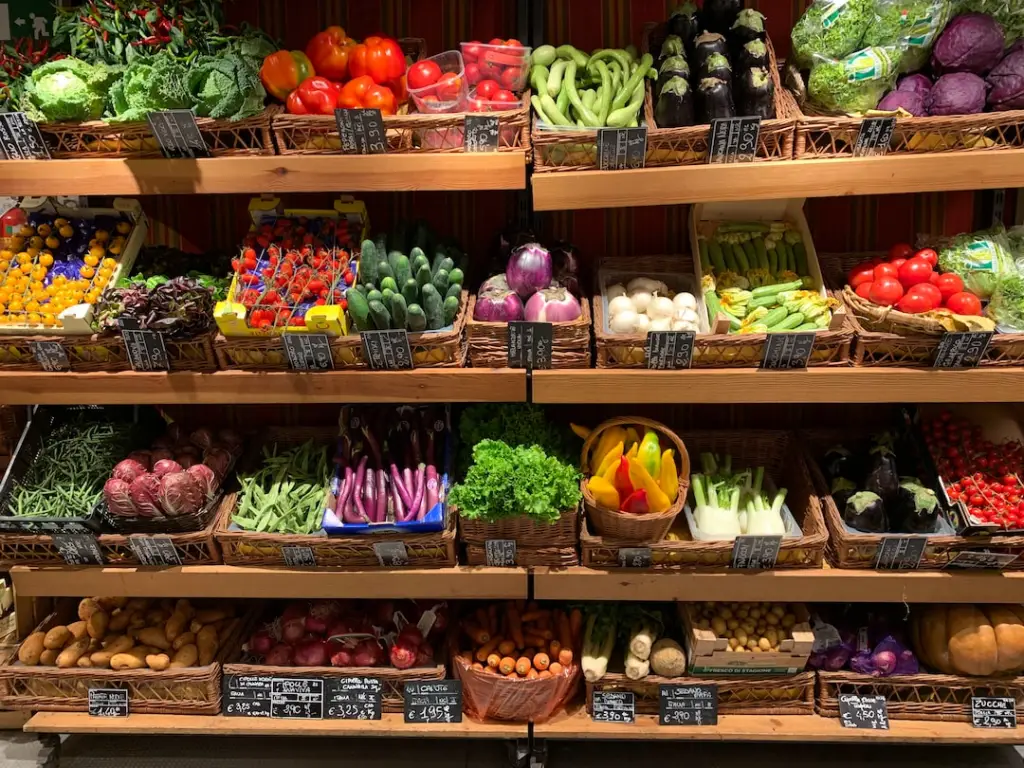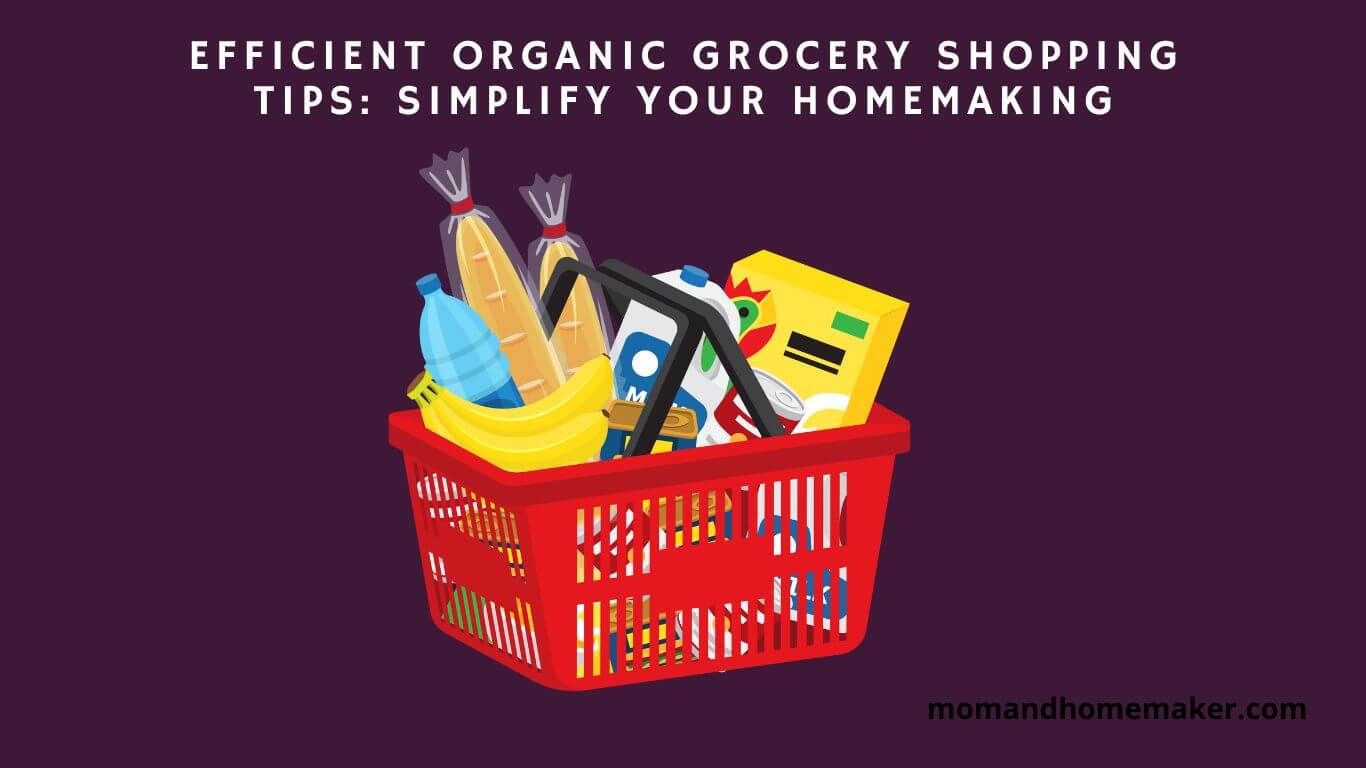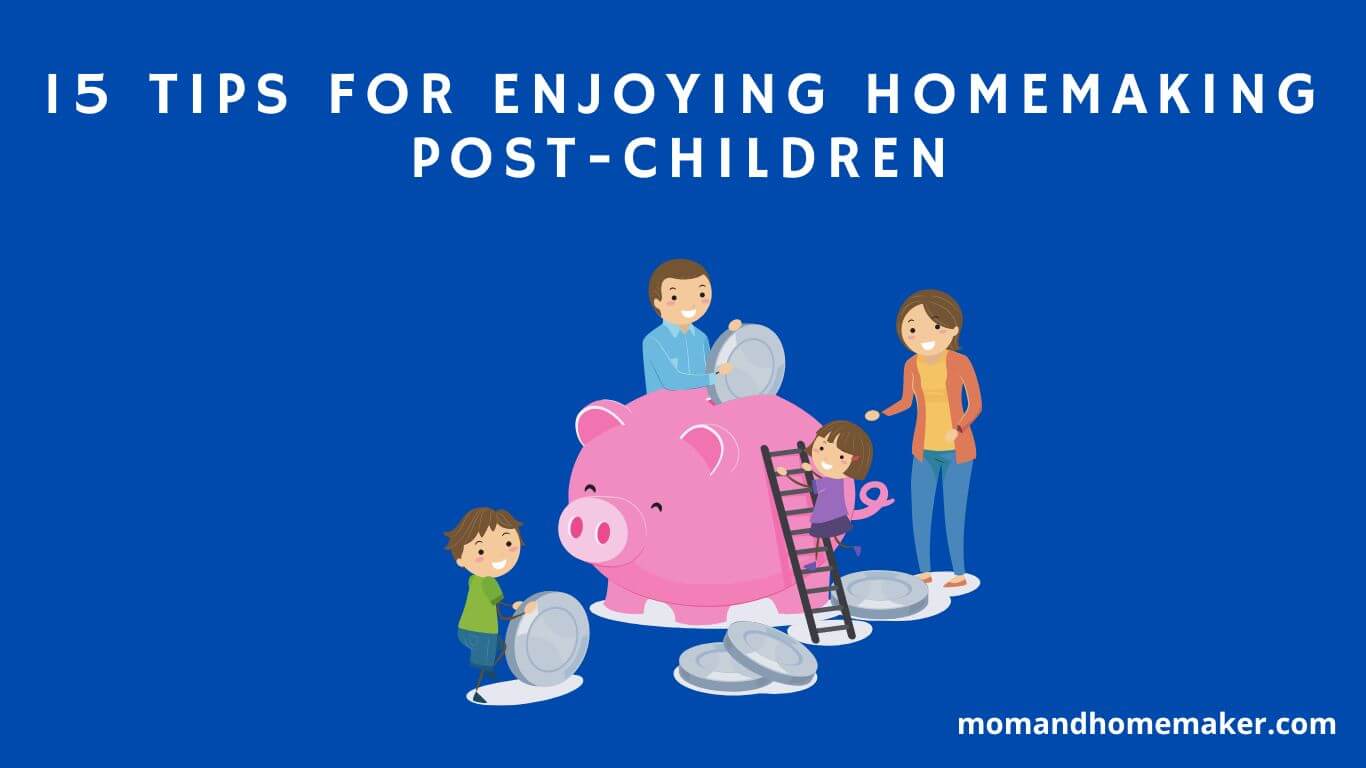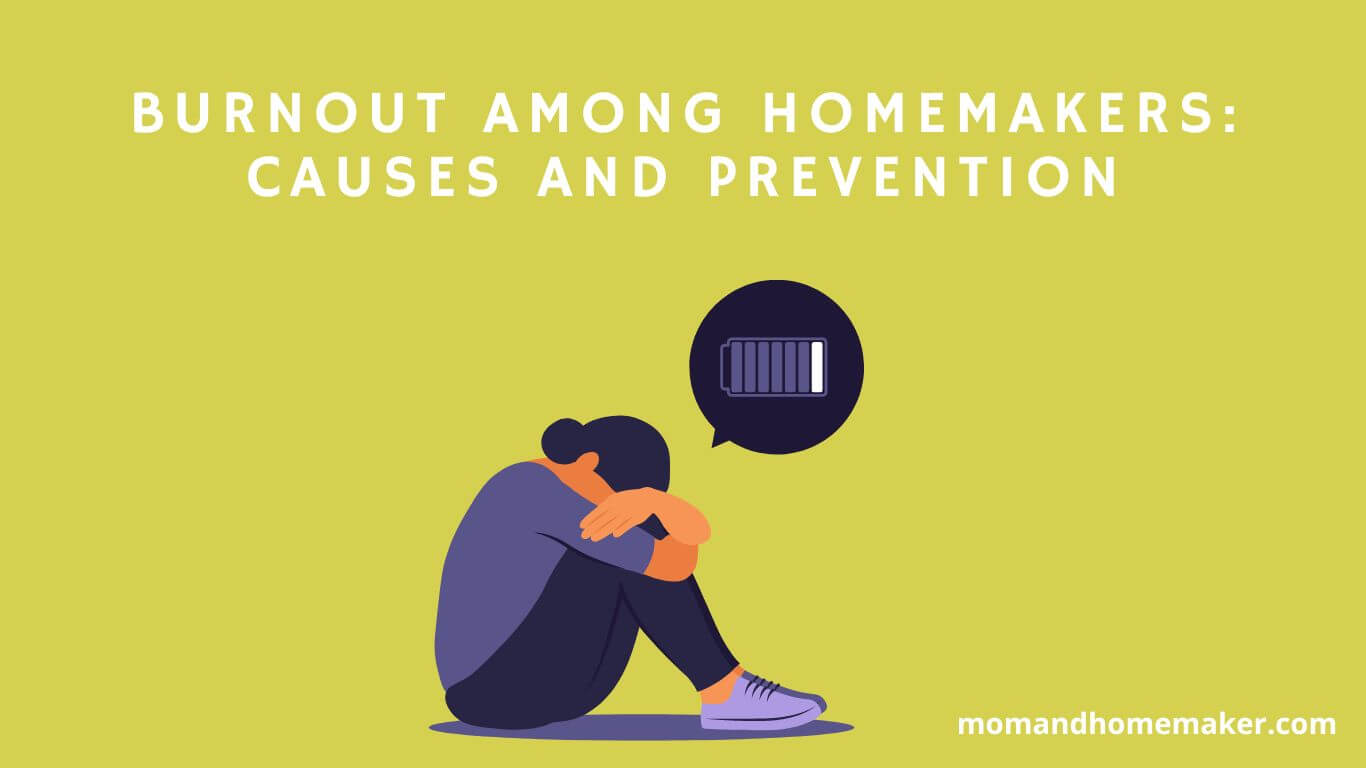As a busy homemaker, I understand the importance of efficient organic grocery shopping. It’s crucial to be mindful of what you bring into your home and simplify your life.
That’s why I’ve gathered some practical tips and tricks to help you navigate the aisles effortlessly. One helpful strategy is to create a grocery list before you head to the store. This way, you can stay focused and avoid unnecessary purchases.
Consider utilizing online delivery services for added convenience. By taking advantage of these resources, you can save time and effort.
Join me on this journey to simplify your homemaking and become part of the organic grocery community.

Make a Grocery List
To make my organic grocery shopping more organized, I always create a simple grocery list before going to the store. This helps me stay focused and ensures that I don’t forget any important items.
The key benefit of making a grocery list is that it allows me to plan my meals for the week. By knowing exactly what ingredients I need, I can create a meal plan that’s both nutritious and budget-friendly. It also helps me make healthier choices by including options for snacks that are good for me.
A list helps me reduce food waste by only purchasing what I actually need and avoiding impulse buys. Moreover, if I’m looking for specific specialty ingredients, having a list makes it easier to find them without aimlessly wandering around the store.
All in all, creating a grocery list is an essential step in efficient organic grocery shopping.
Plan Your Meals in Advance
Planning meals in advance is an essential step in efficient organic grocery shopping. By taking the time to meal prep and plan my meals for the week, I can save both time and money.
Meal planning allows me to create a grocery budget and stick to it, ensuring that I only buy what I need and avoid impulse purchases. I also find helpful meal planning apps that assist in creating a grocery list and suggesting meal ideas based on what’s in my pantry. This not only helps reduce food waste but also provides a variety of vegetarian meal options.
Shop at Local Farmer’s Markets
I enjoy shopping at local farmers’ markets for fresh, organic produce. There are several reasons why it’s important to support local farmers through these markets.
When you shop at farmers’ markets, you directly support local farmers and their families. By doing so, you help them continue their sustainable farming practices, which are crucial for the environment.
The produce at farmers’ markets is often fresher and more flavorful compared to what you find in regular grocery stores. Additionally, you have the opportunity to chat with the farmers and learn about their growing practices. They can even provide you with tips on how to prepare the produce in delicious ways.
If you’re wondering how to find farmers markets near you, there are several ways to do so. You can check online directories or ask friends and neighbors for recommendations. You’ll be pleasantly surprised by the plethora of options available.
When you visit farmers’ markets, remember to bring your own reusable bags and arrive early for the best selection. Don’t be afraid to haggle for a better price either. Farmers’ markets are all about community and connection, so take the time to engage with the farmers and get to know them.
Join a CSA (Community Supported Agriculture)
When you want to buy organic groceries, joining a CSA is a great way to support local farmers and ensure a steady supply of fresh produce. By becoming a member, you contribute to the sustainability of your community and enjoy numerous benefits.
CSA membership allows you to savor seasonal fruits and vegetables that are grown without harmful chemicals. The produce from CSAs is often more flavorful and nutrient-rich compared to grocery store offerings.
To find a CSA near you, start by searching online directories or asking local farmers. Once you’ve joined a CSA, here are some tips to make the most of your membership: stay in touch with your farmer, experiment with new recipes using unfamiliar vegetables, and share the abundance with friends and neighbors.
Joining a CSA not only creates a sense of belonging but also promotes a healthier, more sustainable lifestyle.
Utilize Online Grocery Delivery Services
I use online grocery delivery services to simplify my homemaking and efficiently shop for organic groceries. These services offer several benefits that make them worth considering.
Online grocery delivery saves time. Instead of going to a physical store, I can browse through available products, add them to my cart, and have them delivered to my doorstep. This convenience allows me to focus on other tasks and responsibilities.
These services offer convenience and accessibility. I can shop from the comfort of my own home using websites or mobile apps. This means I can shop anytime and anywhere, fitting it into my schedule without any hassle.
Furthermore, online grocery delivery provides a wide variety of organic products. This ensures that I’ve access to a range of options that meet my dietary needs and preferences. Whether it’s fresh produce, pantry staples, or specialty items, I can easily find what I’m looking for.
These services allow for easy comparison between different providers. I can compare prices, delivery options, and customer service to find the best fit for me. This ensures that I get the most value for my money and a seamless shopping experience.
In addition to these benefits, online grocery delivery services often provide cost-effective options such as discounts, promotions, and loyalty programs. These further enhance the value and affordability of using these services.
Opt for Bulk Buying
Incorporating bulk buying into my grocery shopping routine is a smart choice. It not only saves me time and money but also ensures a consistent supply of organic products.
Buying in bulk allows me to take advantage of discounts, which reduces the overall cost of my groceries. This approach also helps me minimize waste since I can purchase larger quantities of items with longer shelf lives.
Bulk buying provides convenient storage options. I can store excess items in my pantry or freezer for future use. Moreover, this method has nutritional benefits as I can stock up on healthy organic products that will last me a long time.
Explore the Frozen Food Section
When you explore the frozen food section, you’ll find a convenient and time-saving option for stocking up on organic groceries. Here are four reasons why you should check out this section:
- Discover new recipes: Frozen vegetables offer a versatile option for trying out new recipes. Whether you’re making stir-fries or soups, the possibilities are endless.
- Benefits of frozen vegetables: Don’t underestimate the nutritional value of frozen vegetables. They’re just as nutritious as fresh ones because they’re picked at their peak ripeness and immediately frozen, preserving their vitamins and minerals.
- Simplify meal prep: With frozen food, you can easily meal prep for the week ahead. Simply thaw and cook when needed, saving you precious time during busy weekdays.
- Recommended frozen food brands: Look for reputable brands that prioritize quality and organic ingredients. Some popular choices include Green Giant, Cascadian Farm, and Earth’s Best.
Remember to store frozen food properly to maintain its quality and freshness. By exploring the frozen food section, you can simplify your homemaking while enjoying the benefits of organic groceries.
Bring Your Own Reusable Bags and Containers
When I bring my own reusable bags and containers, I not only reduce waste but also make my organic grocery shopping more efficient. Using reusable bags has many benefits both for the environment and my overall shopping experience.
By opting for reusable bags, I can significantly reduce my contribution to plastic waste, which is a major environmental concern. These bags are also sturdier and more reliable than single-use ones, making it easier for me to carry my groceries home without any mishaps.
Moreover, bringing my own zero-waste containers allows me to buy bulk items like grains, nuts, and spices, eliminating the need for excessive packaging. This eco-friendly shopping practice aligns with my desire to make sustainable choices and be a responsible consumer.
Compare Prices and Look for Sales
When I compare prices and look for sales, I can save money on my organic grocery shopping while still making sustainable choices. Here are some techniques and strategies for finding the best organic grocery deals:
- Research prices: Before going to the store, check online or browse through flyers to compare prices of organic products at different retailers. This helps identify which store offers the best deals.
- Shop in season: Buying organic produce when it’s in season ensures freshness and affordability. Plan meals around seasonal fruits and vegetables to maximize savings.
- Sign up for newsletters: Many organic grocery stores and brands offer newsletters or loyalty programs with exclusive discounts and coupons. Subscribing to these can help spot organic sales and discounts easily.
- Buy in bulk: Purchasing organic pantry staples like grains, nuts, and dried fruits in bulk saves money in the long run. Store them properly to maintain freshness.
Check for Organic Labels and Certifications
When buying organic products, it’s important to check for organic labels and certifications. These labels serve as a crucial distinction between organic and non-organic produce. When a product is certified organic, it means that it has met the strict requirements set by organic certification bodies. These certifications ensure that the products are free from synthetic pesticides, genetically modified organisms (GMOs), and artificial additives.
Understanding different organic labels can help you make informed choices. Two labels to look out for are USDA Organic, which guarantees that the product is at least 95% organic, and the Non-GMO Project Verified label, which indicates that the product is free from genetically modified ingredients.
Buy Seasonal Produce
Simplifying homemaking can be as easy as buying seasonal produce. Not only does it save you time and money, but it also ensures that you’re getting fresh and nutritious food. Let’s explore four reasons why buying seasonal produce is beneficial:
- Seasonal recipes: When you choose produce that’s in season, you have a wide variety of ingredients to work with. This opens up endless possibilities for delicious and healthy meals.
- Benefits of eating seasonal produce: Seasonal fruits and vegetables are picked at their peak ripeness, meaning they’re packed with nutrients and flavor. Eating produce that’s in season can support your overall health and well-being.
- Seasonal meal planning: By focusing on seasonal produce, you can plan your meals more efficiently. Create a weekly meal plan based on what’s readily available, reducing food waste and ensuring you always have fresh ingredients on hand.
- Seasonal gardening tips: If you enjoy gardening, buying seasonal produce can inspire you to grow your own fruits and vegetables. You’ll find gardening tips and tricks specific to the season, helping you create a thriving garden of your own.
Prioritize Organic Meat and Dairy Products
When it comes to efficient organic grocery shopping for my homemaking needs, I prioritize organic meat and dairy products. Choosing organic options has numerous benefits for both my health and the environment.
For organic meat sourcing, I support local farmers who raise their animals without antibiotics, hormones, or GMOs. This ensures that the meat I consume is of high quality and free from harmful chemicals.
As for organic dairy, I appreciate knowing that the cows are treated humanely and that the milk and dairy products I consume are pesticide-free and free from synthetic additives.
While budgeting for organic groceries may require some adjustments, the peace of mind and overall well-being make it worthwhile. By finding local organic suppliers, I not only support local businesses but also foster a sense of community and belonging.
Consider checking out your local farmers’ markets or local organic grocery stores to find these products.
Minimize Processed Foods
Minimizing processed foods is a key priority in my efficient organic grocery shopping routine. Here are four reasons why reducing our consumption of processed foods is important:
- Reducing additives: Processed foods often contain artificial preservatives, colorings, and flavorings that can harm our health. By choosing whole, unprocessed ingredients, we can avoid these additives.
- Whole-ingredient cooking: Cooking meals from scratch using whole ingredients gives us better control over what goes into our food. This ensures that we get maximum nutritional value from our meals.
- Nutritional value awareness: When we focus on minimizing processed foods, we become more aware of the nutritional value of the foods we consume. This helps us make healthier choices and nourish our bodies with essential vitamins and minerals.
- Homemade snacks: By minimizing processed foods, we’re encouraged to make our own snacks at home. This not only saves money but also allows us to choose healthier options such as fresh fruits, vegetables, and homemade granola bars.
Shifting our focus to fresh produce and whole ingredients allows us to prioritize our health and well-being while simplifying our homemaking routine.
Grow Your Own Organic Herbs and Vegetables
Growing your own organic herbs and vegetables at home is a fantastic way to enhance your efficient grocery shopping routine and reduce your reliance on processed foods. By practicing sustainable agriculture through thoughtful garden planning, you not only enjoy the benefits of fresh and flavorful ingredients but also contribute to minimizing your carbon footprint. Starting an organic garden may seem daunting at first, but with helpful tips for beginners, you can easily get started.
When you grow your own herbs and vegetables, you have complete control over what goes into your food. This means you can ensure that no harmful pesticides or chemicals are used, resulting in healthier and safer produce for you and your family. The joy and satisfaction of seeing your plants thrive and become a part of your own self-sustaining ecosystem is truly priceless. It’s a rewarding and fulfilling hobby that adds value to your homemaking journey.
To get started, consider growing popular herbs like basil, cilantro, or mint, which can be used in a variety of dishes and add incredible flavor to your meals. For vegetables, try growing tomatoes, peppers, or lettuce, which are relatively easy to cultivate and provide a bountiful harvest. Make sure to provide your plants with adequate sunlight, water, and nutrient-rich soil to ensure their healthy growth.
Try DIY Organic Pantry Staples
Continuing my journey of efficient organic grocery shopping, I’ve discovered that making DIY organic pantry staples is a fantastic way to simplify homemaking and ensure I always have high-quality ingredients on hand.
Let me share four items that you can easily create at home to enhance your organic lifestyle:
- DIY Organic Bread: When you bake your own bread, you have complete control over the ingredients, avoiding unnecessary additives. Plus, the aroma of freshly baked bread is simply irresistible.
- Homemade Organic Condiments: Say no to store-bought versions filled with artificial flavors and preservatives. Instead, whip up your own organic ketchup, mayonnaise, and salad dressings using wholesome ingredients.
- Organic Baking Essentials: Create your own organic baking mixes by combining flour, sugar, baking powder, and other necessary ingredients. This way, you’ll have a convenient homemade mix ready whenever you crave a delicious baked treat.
- Natural Cleaning Products: Bid farewell to harsh chemicals and make your own natural cleaning solutions using vinegar, baking soda, and essential oils. Not only are they effective, but they’re also better for your health and the environment.
Opt for Minimal Packaging
When you make your own organic pantry staples, it’s important to choose minimal packaging. This not only helps the environment but also aligns with our goal of living an eco-friendly lifestyle. By adopting zero-waste grocery shopping and eco-friendly habits, we can greatly reduce our impact on the environment.
One way to do this is by selecting products with minimal or easily recyclable and biodegradable packaging. Here are three sustainable packaging options to consider:
- Glass jars or containers: These are reusable and recyclable, which helps reduce single-use plastic waste. Examples include mason jars and glass bottles.
- Compostable or biodegradable packaging: This type of packaging breaks down naturally, reducing landfill waste. Look for compostable bags and plant-based packaging.
- Bulk or refillable options: Choosing bulk bins and refill stations reduces packaging waste and allows you to customize the quantities you need.
By embracing these alternatives and making conscious choices, we can contribute to a more sustainable future. It also helps us feel connected to a community of individuals who prioritize eco-friendly practices.
Take Advantage of Loyalty Programs and Coupons
I enjoy using loyalty programs and coupons to save money when shopping for organic groceries. These programs and coupons not only help me stay within my budget but also make me feel like a valued member of the grocery store community.
Here are four ways I make the most of loyalty programs and coupons:
- Benefits of loyalty programs: When I sign up for a store’s loyalty program, I gain access to exclusive member discounts and special promotions.
- Coupon stacking strategies: I combine store coupons with manufacturer coupons to maximize my savings. This allows me to get the best deals on organic products.
- Digital coupon apps: Apps like Ibotta and Checkout 51 are great resources for finding and redeeming digital coupons. I use these apps to get cashback offers on my organic grocery purchases.
- Cashback offers: Some loyalty programs offer cashback rewards on specific purchases. I make sure to take advantage of these offers to earn money back on my organic grocery shopping.
Stay Organized and Keep Track of Your Pantry Inventory
To effectively manage my grocery shopping, I make sure to stay organized and keep track of what’s in my pantry. This is crucial for efficient meal planning and reducing food waste. Let me show you the benefits of pantry organization in a simple table:
| Benefits of Pantry Organization | Emotional Response |
|---|---|
| Easy access to ingredients | Convenience |
| Reduced food waste | Contentment |
| Efficient meal planning | Peace of mind |
| More efficient grocery shopping | Confidence |
| Support for local farmers markets | Sense of community |
By knowing what I have in my pantry, I can plan meals and create grocery lists more effectively. This not only saves me time but also allows me to make the most of my CSA membership and support local farmers’ markets. It’s a wonderful feeling to be part of a community that values sustainable living.
Conclusion
Here are some efficient tips for simplifying your homemaking through organic grocery shopping.
Instead of focusing on convenience, these tips will help you save time and effort while still prioritizing eco-conscious choices.
By planning your meals, shopping at farmers’ markets, and preparing meals from scratch, you can embark on a journey of self-sufficiency and feel proud of your sustainable choices.
So, let’s explore these tips and make your grocery shopping experience more enjoyable and eco-friendly.












